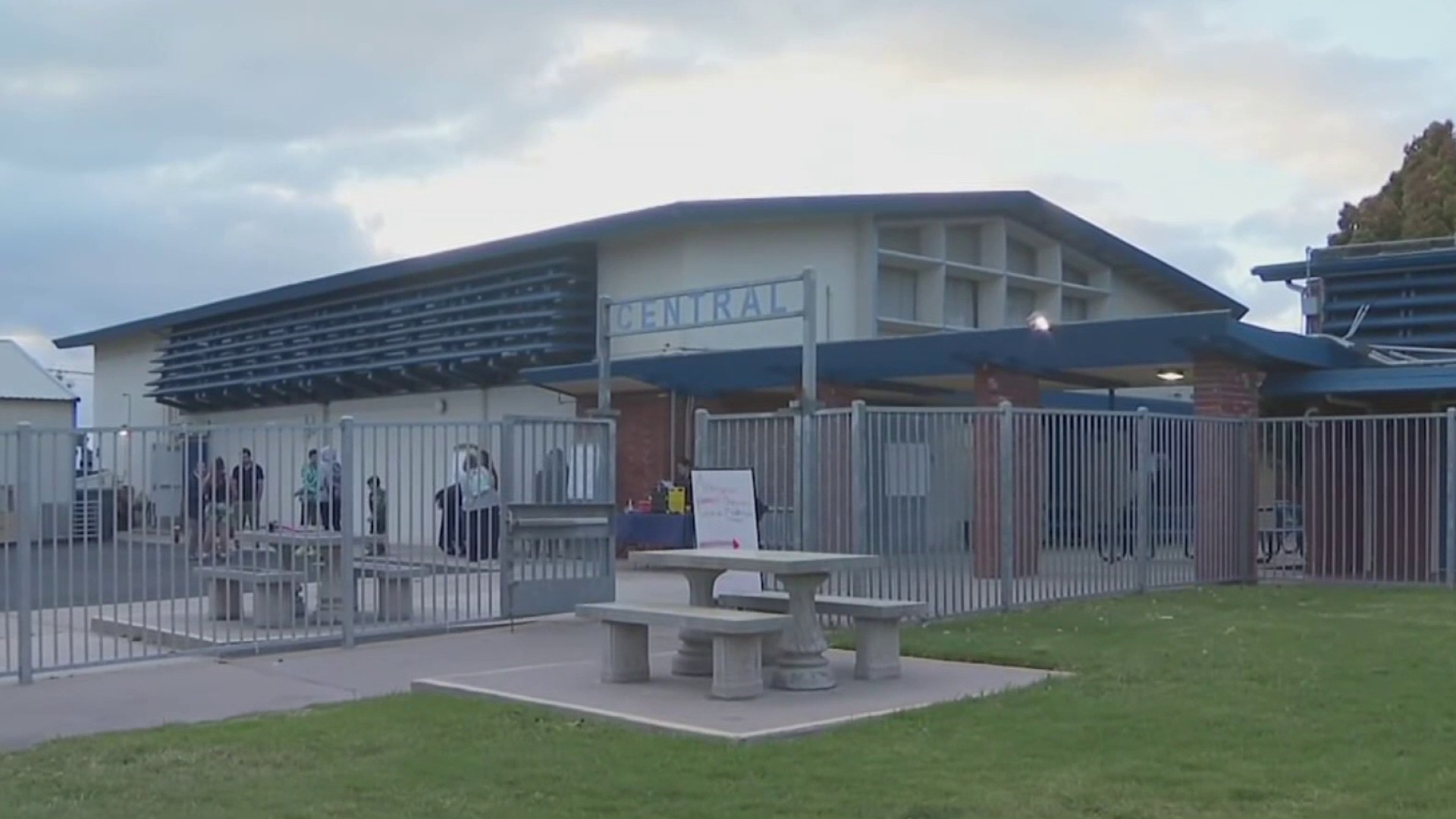It’s been one week since several tons of ammonium nitrate exploded in Beirut, Lebanon, killing at least 171 people and injuring thousands more.
NBC 7 Investigates wanted to know how much of the chemical compound it is stored here in San Diego County, and how it is monitored and secured.
University of California San Diego assistant teaching chemistry professor Brian Leigh said at its basic level, ammonium nitrate is a salt.
“This is a great way to deliver nitrogen to your crops,” says Leigh.
Leigh said the compound is a popular fertilizer. It’s also popular as a blasting agent in the mining industry when it’s combined with fuel oil.
It’s ubiquitous, Leigh told NBC 7, and probably in a lot of things you might not expect. For example, it's in cold packs you can find at your drugstore. And despite its popularity as a mining blasting agent, it’s no more dangerous than many things we use everyday.
“It’s not classified as an explosive,” said Leigh. “In fact, it’s an oxidizer, you can’t even set it on fire.”
Local
Basically, according to Leigh, a lot has to go sideways or someone has to intend to ignite the material -i it will not just spontaneously combust.
“You had 2,750 metric tons of mine explosive grade ammonium nitrate sitting in a warehouse for six years with no problem,” said Leigh in reference to the Beirut explosion. “And the only thing that made it be a problem was a catastrophic firework meltdown right next door.”
Sande Facinelli is the chief of San Diego County’s Hazardous Materials Division.
Facinelli does not believe what happened in Beirut could happen here in San Diego because of what she calls a “robust” inspection system.
According to Facinelli, any entity that stores 500 pounds or more of ammonium nitrate must report it to the Certified Unified Program Agency (CUPA) which then shares that information with the county.
County inspectors then make sure that each facility has the amount they claim, and the county then shares that information with fire and police departments to alert first responders in case of an emergency.
Through a public records request, NBC 7 Investigates obtained the list of facilities reporting 500 or more pounds of ammonium nitrate:
- MJ Baxter Drilling – 12485 N HWY 67, Lakeside, 92040
- MJ Baxter Drilling – 12560 N HWY 67, Lakeside, 92040
- Tom Dyke Drilling & Blasting – 1115 Tavern Road, Alpine 91901
- Hocking International – 980 Rancheros Drive, San Marcos, 92069
- Ewing Irrigation - 849 Rancheros Drive, San Marcos, 92069
- Ewing Irrigation – 7151 Ronson Rd, Ste A, San Diego, 92111
- CP Kelco – 2025 Harbor Drive, San Diego, 92113
- Nutrien Ag Solutions – 1043 E. Mission Rd, Fallbrook, 92028
- Nutrien Ag Solutions – 1015 Linda Vista Dr. Ste B, San Marcos, 92078
- Balboa Golf Course – 2600 Golf Course Drive, San Diego, 92102
- Loma Santa Fe Country Club – 1505 Lomas Santa Fe Dr., Solana Beach, 92075
- Morgan Run Resort & Club – 15508 Via De Sante Fe, Rancho Sante Fe, 92067
- Seaworld – 1720 S. Shores Rd., San Diego, 92109
- National City Golf Course – 1439 Sweetwater Rd., National City, 91950
In addition to the 14 locations above, NBC 7 Investigates found two high schools in the Sweetwater Union High School District that reported 500 pounds or more of the material stored.
The county insists this list is accurate according to its latest records -- records that are submitted by each facility.
However, after our questions, a spokesman for Sweetwater Union High School District said the two high schools on the list “incorrectly self-reported” ammonium nitrate, when in fact, the schools use a different ammonium fertilizer.
“We do have fertilizer storage at most sites for general landscaping and maintenance, but these two sites we incorrectly reported and that correction is being made with (the California Environmental Reporting System) now,” spokesman Manuel Rubio told NBC 7.
The county is now in the process of verifying this information, but has not yet arranged an on-site inspection.
Avoiding Tragedy
Despite Leigh and Facinelli’s confidence in the safety of the stockpiles of ammonium nitrate here in San Diego County, the mayor of West, Texas believes we have a long way to go in terms of regulating how the potentially dangerous material is stored.
“To see that wall coming at you,” said Mayor Tommy Muska, describing what it was like to watch the Beirut blast footage. “I experienced that same thing. And it just brought back a flood of emotions and memories.”
Muska has a more intimate experience with ammonium nitrate accidents than most. He served as both the town’s mayor and as a volunteer firefighter when a fire set off 240 tons of ammonium nitrate in a fertilizer mixing plant in 2013, leveling a quarter of the small, farming town.
Seven years later, Muska said he is frustrated watching another tragedy born of the same chemical compound, one he says still is not properly regulated in the U.S.
“I don’t know if we can ever learn from our mistakes,” said Muska. “That something needs to be done about this chemical.”
The EPA was set to roll out stricter regulations on ammonium nitrate outlined under the Obama administration, but after President Trump took office, those regulations are now off the table indefinitely.



